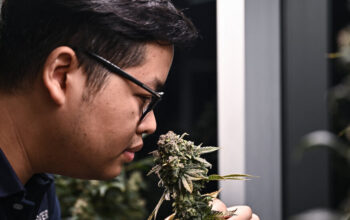
We’re covering the U.S. response to Russia’s security demands and the recapture of a Syrian prison from ISIS.
U.S. responds to Russia’s demands
The U.S. and NATO gave formal responses on Wednesday to Russia’s demands that NATO pull back forces from Eastern Europe and bar Ukraine from ever joining the alliance. The U.S. response “sets out a serious diplomatic path forward should Russia choose it,” the secretary of state, Antony Blinken, said.
Russia has insisted for weeks that the U.S. provide written responses before it would decide on its next course of action, while asserting that it had no plans to invade Ukraine. Blinken said he expected to speak in the coming days with his Russian counterpart, Sergey Lavrov, once Russian officials are “ready to discuss next steps.”
The document has not been released publicly, but Blinken said it proposed “reciprocal transparency measures regarding force posture in Ukraine, as well as measures to increase confidence regarding military exercises and maneuvers in Europe” and nuclear arms control in Europe.
Blinken added that the response “reiterates publicly what we’ve said for many weeks” and that the U.S. would not rule out Ukraine’s membership in NATO in the future.
Kurdish militia retakes Syrian prison from ISIS
A Kurdish-led militia that had been fighting Islamic State members for control of a Syrian prison regained full control on Wednesday. The Kurdish-led group’s forces besieged the remaining ISIS militants into surrender, bringing to an end one of the most audacious attacks by Islamic State fighters in three years.
ISIS had attacked the prison, in the northeastern city of Hasaka, in a bid to free thousands of the group’s fighters taken captive as the caliphate fell apart, as well as about 700 boys whose families had joined the Islamic State. Officials deemed the boys dangerous, but human rights activists said their detention could violate international law and potentially radicalize them, creating a new generation of jihadists.
The prison siege highlighted a growing ISIS comeback.
After Omicron, another variant?
Global Covid surges caused by the Omicron variant appear to be cresting in some nations — particularly in Western Europe, the U.S. and South Africa — but new cases are still climbing in regions with low vaccination rates.
The vaccine gap could set the stage for another dangerous variant, according to the World Health Organization.
“The fact remains that more than three billion people haven’t received their first dose yet, so we have a long way to go,” Dr. Maria Van Kerkhove, the agency’s Covid-19 technical lead, said this week.
Tedros Adhanom Ghebreyesus, the head of the W.H.O., said that the emergency phase of the pandemic was still very much here.
“It’s dangerous to assume that Omicron will be the last variant or that we are in the endgame,” Tedros said at a W.H.O. executive board meeting on Monday. “On the contrary, globally, the conditions are ideal for more variants to emerge.”
Data: New daily cases remain at record highs globally, averaging about 3.4 million — an increase of more than 30 percent over two weeks, according to a Times database.
The divide: In low-income countries, only 10 percent of the population has received at least one vaccine dose. In high- and upper-middle-income countries, 78 percent have.
Here are the latest updates and maps of the pandemic.
In other developments:
THE LATEST NEWS
Asia Pacific
Sweden’s song writers once dominated U.S. pop. Now, they’re writing for K-pop, even if they don’t speak Korean. For some Koreans, the reason is actually quite simple: Swedes write melodies that are so catchy, fans want to sing them at stadium shows and in karaoke bars.
Lives lived: Frank Dutton, one of South Africa’s most lauded police officials, took on apartheid’s crimes. He died at 72.
How do you say Kyiv?
It is perhaps not the most important question regarding the international maelstrom currently brewing in Ukraine — but it is a common one, with an unexpectedly political answer: How do you pronounce the capital’s name, Kyiv?
Many Russian speakers favor the two-syllable “key-EV.” But the preferred pronunciation among Ukrainians is less commonly heard among English speakers. Marta Jenkala, who teaches Ukrainian language at University College London, has a tip: “It helps if you smile a little bit to say it, especially on the first syllable,” she said.
In 2019, Yuri Shevchuk, a lecturer in Ukrainian at Columbia University, told The Times that native Ukrainians stress the first vowel, and pronounce it like the “i” in “kid” or “lid.” The second vowel, pronounced as a separate syllable, sounds like the “ee” sound in “keel.” Listen to a recording here.
Andrii Smytsniuk, a Ukrainian who teaches Ukrainian and Russian at the University of Cambridge, would argue that people should pronounce it in a Ukrainian way “that is as close to the original as possible.” A good analogue is people’s names, he said, adding, “I think it makes sense to pronounce someone’s name the way the person would pronounce it.”


